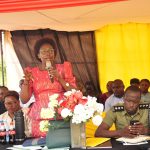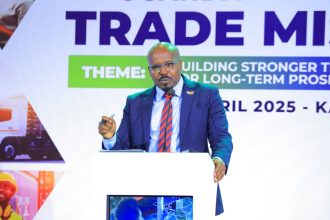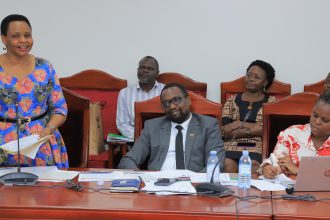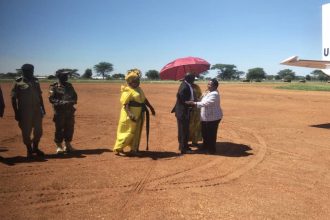(Kampala) – Uganda’s non-governmental organizations (NGOs) are facing an unprecedented funding challenge as foreign aid decreases, leaving many organizations at risk of closing. At a recent annual meeting held by the Foundation for Human Rights Initiative (FHRI) at Human Rights House in Nsambya, Kampala, experts and officials called for NGOs to explore sustainable, local funding models to ensure their continued operation and ability to advocate for the rights of Ugandans.
Stephen Okello, Secretary for the National Bureau of NGOs in the Ministry of Internal Affairs, pointed out that a reliance on foreign aid for over 98% of NGO funding has created a precarious situation. “This dependence on external donations weakens sustainability and compromises independence. An NGO relying solely on foreign funds cannot negotiate effectively or operate independently,” he explained, urging NGOs to consider local fundraising approaches.
The financial strain is evident in the reduction of registered NGOs in Uganda, from over 14,000 in 2019 to approximately 6,000 in 2024. Okello warned that as foreign aid continues to dwindle, NGOs face the threat of closure unless they can secure local funding sources. He emphasized the importance of Section 46 of Uganda’s NGO Act, which encourages NGOs to consider self-sustaining funding options.
Year
Registered NGOs
2019
14,000+
2024
~6,000
Okello’s remarks come at a time when concerns over human rights in Uganda are growing. NGOs have traditionally played a vital role in advocating for the rights of marginalized communities and holding government accountable. He added that the government is exploring ways to create an environment where NGOs can thrive without an over-reliance on international aid.
The Executive Director of FHRI, Dr. Livingstone Sewanyana, also addressed the challenges NGOs face. He described a “hostile legal and financial environment,” particularly regarding tax policies that apply to NGOs. According to Sewanyana, NGOs are required to pay taxes on funds generated through income-generating activities, even though the proceeds are reinvested into community services. He called on the government to consider tax exemptions for NGOs to better support their work, saying, “NGOs contribute significantly to Uganda’s development and deserve more support from the government.”
Sewanyana explained that a lack of local philanthropy compounds the financial struggle, leaving NGOs reliant on foreign donations that have also reduced in recent years. He called for a legal framework that allows the government to support these activities directly, similar to how donor countries fund their own NGO sectors. He expressed his hope for “a Uganda where all citizens enjoy human rights, live free from poverty, and fully participate in the democratic process.”
Josephine Ndagire, chairperson of the FHRI board, noted that although NGOs are trying to reduce dependence on foreign aid by investing in local assets, there is still a need for additional resources to sustain their work. “We have invested in properties and shares to fund our activities, but more support is still required,” she said.
In addition to financial struggles, Sewanyana highlighted Uganda’s deepening human rights challenges. He noted that many Ugandans continue to live in poverty, which limits their participation in decision-making processes. The widespread poverty prevents many from accessing government programmes aimed at socio-economic development, including the Parish Development Model. “Without access to basic needs, people’s voices are stifled, and they cannot fully engage in society,” he said.
Sewanyana further noted delays in the justice system as a source of public dissatisfaction. He reported that cases often take too long to be resolved, which discourages citizens and undermines their faith in the system. “People are dying before their cases are resolved, which not only denies them justice but erodes trust in the state,” he added.
With the 2026 general elections approaching, Sewanyana expressed concern that past experiences have left many Ugandans disillusioned with the political process. He recalled the 2021 election period when internet shutdowns and restrictions on observers raised concerns about transparency. “There is no excitement about the upcoming elections. The memories of 2021, when the internet was shut down and observers were blocked, are still fresh, and many feel their right to participate freely has been undermined,” he said.




















